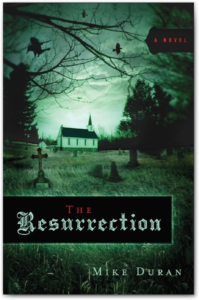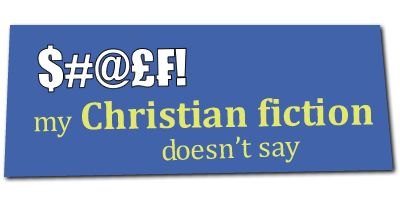$#@£₣! My Christian Fiction Doesn’t Say, Part 3
 Bleep, bleep, bleepity bleeping bleep! Bad Words. Is it okay for a Christian use them?
Bleep, bleep, bleepity bleeping bleep! Bad Words. Is it okay for a Christian use them?
I don’t mean on purpose and angrily. That would at least fall under the Bible’s reminders not to act like we’re God and get furious when the world doesn’t match our expectations. That’s a different debate.
But what about fictitious cussing — describing, even quoting, Bad Words a character says?
If you read a published Christian novel, you’ll likely not find any Bad Words. Such publishers have decided that while it might be okay to show certain other sins, such as violence or envy or even lust, Bad Words are banned. That’s what this series has been about: discussing all the arguments I could think of, for and against allowing Fictitious Cussing.
Part 1: Cussing is not Christian vs. Christian fiction is lame because of no-swearing rules. (Also: Why not use substitutes? — as in “he swore,” or quoting a made-up swear word.)
Part 2: Why do we need the cussing? vs. Cussing helps show the evil in our world.
Now I’m ready to conclude this: how an author uses language depends on two things — the story genre/rules, and the readership.
 For example, a certain author’s new book begins with a trio of church ladies having a prayer meeting. One of them, considering another woman’s tattoo, thinks: if the pastor were here, “he’d make her cover the darned thing.” Unrealistic? I don’t think so. These are members of The Ladies of the Church™ (a very powerful special interest lobby), and it’s unlikely one would swear, even to herself — unless perhaps she were a recent convert, which doesn’t seem to be the case for this character. So here, actual swearing could break the story rules.
For example, a certain author’s new book begins with a trio of church ladies having a prayer meeting. One of them, considering another woman’s tattoo, thinks: if the pastor were here, “he’d make her cover the darned thing.” Unrealistic? I don’t think so. These are members of The Ladies of the Church™ (a very powerful special interest lobby), and it’s unlikely one would swear, even to herself — unless perhaps she were a recent convert, which doesn’t seem to be the case for this character. So here, actual swearing could break the story rules.
But what if the author wanted to show something different about her? What if she actually thought “he’d make her cover the damned thing”? (I hope you don’t mind me saying it here to illustrate.) Compared with the setting, and the character’s apparent Christian or at least “churchian” beliefs, a bad word could startle readers. Why is she behaving that way? Is there something else to this person? I must keep reading to see.
If an author wanted to write that form of story with that kind of character, for a greater redemptive purpose, it’s unlikely any Christian publisher would permit its publication.
And I’m not sure that’s right. It seems to impose a personal conviction about merely quoting what could be a sin — if it’s a sin, even in-story! — on all authors and readers. But what if an author is writing for non-Christian readers? What if he’s writing a novel set in the ghetto, or an alternate-universe dystopia, or a big-city police department’s homicide division?
Against: ‘Love your weaker brothers in Christ’
However, this objection can be made, and mostly I would agree: if one hopes to write a novel for Christian readers, removing “stumbling blocks” such as Bad Words is one way to show love for them. And that’s a Biblical, God-glorifying goal, better than Being Edgy.
But the “stumbling block” objection can be abused. Three groups of people may claim it:
- Christians who truly have a “stumbling block” issue with Bad Words, who would be tempted to sin by reading or hearing a Bad Word. Authors should take them into account — not just for marketing purposes, but love-in-Christ purposes.
- Others who only think their objection is an actual stumbling block. Some Biblical teaching about what is truly a stumbling block could only help them.
- The worst: others, either self-deceived individuals or those with religious control issues, who may pretend to be personally offended. Otherwise they might claim they are personally fine with hearing a Bad Word themselves, so they will instead refer to an imagined Invisible Choir of Innocents who supposedly need their protection.
 In reality, some of these other objectors have Bible-reading issues and their own love-in-Christ issues. As author Randy Alcorn points out about a truly Biblical “stumbling block”:
In reality, some of these other objectors have Bible-reading issues and their own love-in-Christ issues. As author Randy Alcorn points out about a truly Biblical “stumbling block”:
A stumbling block […] is not just anything that causes someone to be offended. […] In many churches, it is older Christians, who think of themselves as more mature, who are offended at the behavior of younger Christians. Almost never are they tempted to do what the younger Christians are doing that offends them (such as listening to rock music), and therefore their offense has nothing to do with the stumbling block of 1 Corinthians 8 or Romans 14.
So for Christians objecting to fictitious cussing, no matter the writer’s professed redemptive purpose, because of “weaker brother” reasons — I’d ask them, in love, some questions to see if they’re not just confused about what a real stumbling block is. As for the Invisible Choir of Innocents: if some of them are truly offended, perhaps they can speak for themselves?
For: ‘Weaker brothers must become stronger’
Here’s one I lean toward almost by instinct: the Gospel has not given us a spirit of fear but of power and love and self-control! If I sin, it’s my own fault, not the fault of a Thing. If you disagree you need to read your Bible more! It’s all clear in there. So don’t be so scared!
Too bad the Apostle Paul didn’t himself follow that logic, and his writing in 1 Corinthians 8 is paramount here. Even while reminding people that “‘an idol has no real existence’” (1 Cor. 8:4) and that there is only one God, Paul says “not all possess this knowledge” (verse 7).
So yes, there is a problem of the weaker brothers not yet being well-educated. But sadly for wannabe brainerds like me, Paul’s solution is not they must get more knowledge about this or you stronger brothers should put the weaker brothers through cultural and spiritual boot camp. Rather he concludes with this: “If food makes my brother stumble, I will never eat meat, lest I make my brother stumble” (1 Cor. 8:13). Then he continues to describe, in a whole chapter, surrendering his legitimate rights out of love for others, so as not to get in the way of them learning the Gospel. (Also, this is a more-nuanced meaning than that suggested by those who use Paul’s “all things to all people” to justify striving to be Hip and Relevant.)
Conclusion: strength through love and truth
My first reaction: I don’t like this. I wish genuinely weaker brothers would just get sanctified as fast as I fancy myself to be now. Well, I’m fine with grittier stories. Bad Words may be needed for some stories or certain characters. Why aren’t you okay with this?
Then I stop to consider. Back when I was a “weaker brother” in this area, what helped me change? It wasn’t throwing myself headlong into Bad Word-infested books, Christian or not — which could have indeed made me stumble. It wasn’t from being lectured (in what could have been a legalistic way!) about my legalism. And it wasn’t from having the bad stuff blown right in my face, even with the best of intentions, to help me get used to it.
Rather, my growth was from slow, gradual exposure to the Gospel and resulting knowledge: hearing or reading a Bad Word need not count as personal sin just because I’d been exposed to it. Why? Because sin comes not from a Thing but from my own heart choice. But I never would have believed this unless I had been reassured by seeing it preached and played out by strong Christians whom I’d already come to trust in other areas.
That is also what Paul does, especially in Romans 14 and 1 Corinthians 8 – 10, in discussing personal-convictions-about-gray-areas issues. Readers just can’t pin him down on one side or the other, because he is firmly in the middle. In one sentence he reminds readers that idols aren’t real; there’s nothing to be afraid of if someone else is still trapped in idolatry. Yet later he’s reminding “stronger brothers” in the faith: surrender your rights, love your brother and do not get in the way of showing the Gospel to them, even as I have been doing.
So if using a Bad Word out loud, or quoting a novel character saying it, will (truly) make my brother stumble, I will never use fictitious swearing, lest I make my brother stumble.
Yet I can’t help but wonder if Paul trusted these things to work themselves out. That may explain why he was firm on one point: real idolatry is evil, and I’m not at all saying it’s no big deal; so avoid it! Perhaps fictitious-swearing advocates should do more to reiterate their love for the Gospel and resulting God-exalting holiness to “stumbling block” Christians, even the posers. We’re on your side. We love the same Jesus as you, and we know some people claiming to be Christians don’t care about truth. And we also hate lies and compromise. Yet may we suggest you reconsider what you believe in this area, sometime — in God’s time?









































Stephen,
This was an excellent post.
The issue to me has always been does the curse words fit the character and have relevance to the story. If it doesn’t, then it becomes gratuitous. But if it does have relevance then it should belong in the story.
I do agree that we must be sensitive to other Christians about such an issue. But, I must admit I believe in both Christian and Secular societies we have become hypersensitive instead.
I appreciate the fact that you show Paul’s response and how he did play it down the middle. Unfortunately, in our world today, people want black and white to answers to everything. Well, there are some issues that have gray areas and we have to be a little more sophisticated and nuanced on how to handle it.
I think you wrote an EXCELLENT post, Stephen. I can see what you mean. Paul didn’t say, well, let the other brothers/sisters get more mature. He said to act better and be discreet ourselves.
My only comment is that since this IS a debate about cussing in literature, and NOT about people cussing in real-life, might there not be some responsibility on the part of the consumer? Should they not do some homework, and find out themselves what is in the book, and make their own decisions accordingly. Some responsibility must be taken in reading/movie choices, methinks.
Again, great post. God bless. 🙂
Excellent post! Sometimes as readers we can only preview so much of a book and later on we read more and discover “Oops” a bad word! Yet if the words are swear words throughout the work, we can opt to stop reading it. Meanwhile if used in gentle context to enhance scene or character that is fine.
Alternatively you can do as the previous owner of a second-hand book I had did. Go through scoring out all the swear-words. Thus drawing far more attention to them. I got rid of that copy.
Interestingly, that was a Christian book (Miracle on the River Kwai) but published by a secular publisher. Most of the characters were soldiers, so I suppose it was appropriate – though toned down a lot I imagine, as it was only milder swear-words used.
This is a very interesting subject, but my thoughts are too hazy to make any kind of coherent comment without spending ages over it. Except that some of the comments seem to assume that the swearing applies only to the bad guys or rough characters. In real life, though, it’s not like that.
Exactly right. Soldiers are not the only users of certain swear words.
I was curious to see how this series would end up, but I think this is an excellent wrap-up post.
I myself struggled a little with language in my last ms., where the non-Christian heroine uses “God” a couple of times in a somewhat thoughtless (“God help me” tossed off in a casual way), then a little less thoughtless (“‘Oh God,’ I moaned, not sure whether it was a curse or a prayer”), and finally in a deliberate and prayerful (“God help me,” I prayed), way. I wrestled with those first two because I never want to be disrespectful to God’s name, but in the end I felt it necessary to show the heroine’s progression from “God” being just another word, to being aware that His name is either a prayer or a curse but not a neutral thing, to finally casting herself on His mercy.
Whether readers will pick up on this, however, is another matter!
Very good wrap up post Stephen. It truly is a balancing act between Christian liberty and concern for weaker brothers. We must always remember that “‘weaker brothers “‘ are not always weak in all areas. We may be the weaker brother and rely on others for support.
My only objection to cussing is this: that cussing is so overused in the secular world it’s a breath of fresh air when you read a novel that doesn’t include a single cuss word. If a novel has a cuss word or two, I don’t find an objection for it if the author has cleverly worded it so that there’s a reason for the cuss word and not just following the secular tradition of cussing every other word and considering it a language or a character trait.
Real life needs to be portrayed so that the secular can relate to it, too, in Christian fiction, but with some boundaries. I thought The Ressurection was an awesome book and it’s characters were perfect. You could relate to the characters. If that’s considered edgy, I’m okay with edgy.
Thank you so much for a very thought-provoking post. I have a lot to think about and pray about.